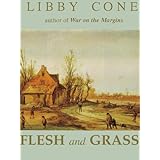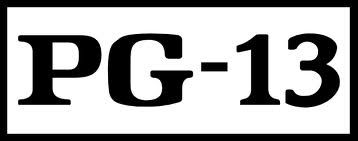Seventeenth-century Holland was a major power with a large, wealthy middle class built on spices and slavery. Dutch schemes to colonize the New World brought few interested parties, but Pieter Cornelissoon Boom, an early Mennonite with a dream of communal living, brings a few families to Delaware Bay in 1663. Their "Little Common-wealth" is just getting started when the bloody economic rivalry between Holland and England unleashes violence on the coast of Delaware. The Nieuw Netherland colonies swing between Dutch and English ownership in a series of Anglo-Dutch wars. Cornelis, Boom's blind son, tells the story of the community (based loosely on the ill-fated Delaware settlement of Pieter Plockhoy) in its various forms of existence, relying on his exquisite memory of scent.
My Take:
I am going to attempt to draw up a little visual in your mind of how the pacing in this book felt to me. Imagine yourself sitting down, relaxing, and talking with a friend. You like this friend, but they are quite dull, what they are saying is important, but you just can't stay interested. You nod off to sleep. All of a sudden, your friend slaps you awake as hard as they can, then proceed to carry on with the dry conversation until you nod off again, not to wake up until you realize they have finished talking. So it was with Flesh and Grass. The dialogue, the events, everything, was authentically written, and felt like I really had taken a page out of a journal from that time, but it was dry. The book felt like a straight telling of events, rather than a story. I didn't get a sense of any of the character's emotions, feelings, and the character development, it really felt like something was missing. This is the drifting off to sleep part for me, when suddenly, right in the middle of the story, something heartbreaking and exciting happens. This is the slapping part, the event was totally shocking, only to be followed by more monotony. I liked the fact that the story was told from a blind character's point of view, this allowed the reader to see history from a different perspective. All in all, if you enjoy accurate historical dialogue, and an authentic feel (even if it is a bit dry) for this time period, you will love this book. It feels akin to a text book, but if you are looking for a historical story, something to draw out emotions, this book is not for you. Overall, I'd rate this book a 4, Borrow from a Friend.
Do you agree with my review? Do you think I'm totally off base? Either way I'd love to hear from you, be sure to leave a comment and tell me how you feel!
A few words with the author, Libby Cone:
The Book Buff: What inspired you to write your first book?
Libby Cone: It's pretty funny. Work was slow and I was surfing the Web, looking at cats. I looked up the Isle of Man, home of the Manx cat, and got a Channel Islands site instead. I had vaguely heard of the occupation, but this time I was also in search of a thesis topic, so a little bell went off. I began researching it. When I was boring people at lunch every day with telling the story, I knew I had to write it.
TBB: How did you come up with the title, Flesh and Grass?
LC: The odors of burning flesh and of sun-warmed grass are the two aromas that have the most meaning for Cornelis. They are at the opposite ends of his olfactory-emotional spectrum. Odor is very densely wired into the memory and emotion parts of the brain, more so in his.
TBB: How much of Flesh and Grass is realistic?
LC: It's based on an excruciatingly obscure settlement (I no longer remember how I stumbled upon it) in colonial Delaware.
TBB: If you had to do it all over again, would you change anything?
LC: I might add a glossary at the end.
TBB: Do you have something you are working on at the moment that you’d like to share with us?
LC: I'm slowly working on something about a medieval poet.
TBB: What is your favorite interview question, and what is the answer?
LC: Well, I love when I'm asked how I came to write "War on the Margins," and I can honestly answer that it came about because I was surfing the Web looking at cats!
Libby Cone: It's pretty funny. Work was slow and I was surfing the Web, looking at cats. I looked up the Isle of Man, home of the Manx cat, and got a Channel Islands site instead. I had vaguely heard of the occupation, but this time I was also in search of a thesis topic, so a little bell went off. I began researching it. When I was boring people at lunch every day with telling the story, I knew I had to write it.
TBB: How did you come up with the title, Flesh and Grass?
LC: The odors of burning flesh and of sun-warmed grass are the two aromas that have the most meaning for Cornelis. They are at the opposite ends of his olfactory-emotional spectrum. Odor is very densely wired into the memory and emotion parts of the brain, more so in his.
TBB: How much of Flesh and Grass is realistic?
LC: It's based on an excruciatingly obscure settlement (I no longer remember how I stumbled upon it) in colonial Delaware.
TBB: If you had to do it all over again, would you change anything?
LC: I might add a glossary at the end.
TBB: Do you have something you are working on at the moment that you’d like to share with us?
LC: I'm slowly working on something about a medieval poet.
TBB: What is your favorite interview question, and what is the answer?
LC: Well, I love when I'm asked how I came to write "War on the Margins," and I can honestly answer that it came about because I was surfing the Web looking at cats!
If you are interested in learning more about the author, Libby Cone, check out http://www.fleshandgrass.com/
**FTC Disclosure: This book was given to me by the author in exchange for an honest review, no other compensation was given. All the opinions are my own**
If you are interested in purchasing Libby Cone's work, please consider supporting The Book Buff by purchasing from the following Amazon link, thanks!



7 comments:
Do authors still come back even if you don't give them the greatest review?
I don't know, I don't really stay in contact with authors after I reviewed their books, no matter what review I give, I just get too many books to keep track of and keep in touch with them. Its hard to give a review that is less than stellar, but I have to give my honest opinion, and not every book is for every person, so hopefully the authors keep that in mind. Someone else might love a book that I panned, you know? It's all about tastes. That's why when I don't like a book, I try to specify why, that way if someone knows that isn't a deal breaker for them, they will still go out and purchase the book.
I get the picture clearly of dozing off and getting slapped :)
Hey thanks for saying hi on 20 something bloggers...just thought I would stop by. I love books and it's great how you give a PG rating for everything as well...great blog
Laura x
www.sidestreetstyle.com
hi from the mbc! i love book review blogs and it's great how thorough you are with your reviews!
Hi, just dropping in to say that was a great review, I know what you meant by it as I find historial fiction can be like that sometimes. Its a shame because thats an interesting time period and people the author has picked there.
Beautiful cover on this one and though I love the idea of reading a book with descriptives from a sense of smell, I don't think that dragging myself through the beginning and ending would be worth (what sounds like) a great middle.
Enjoyed your honest review!
Post a Comment